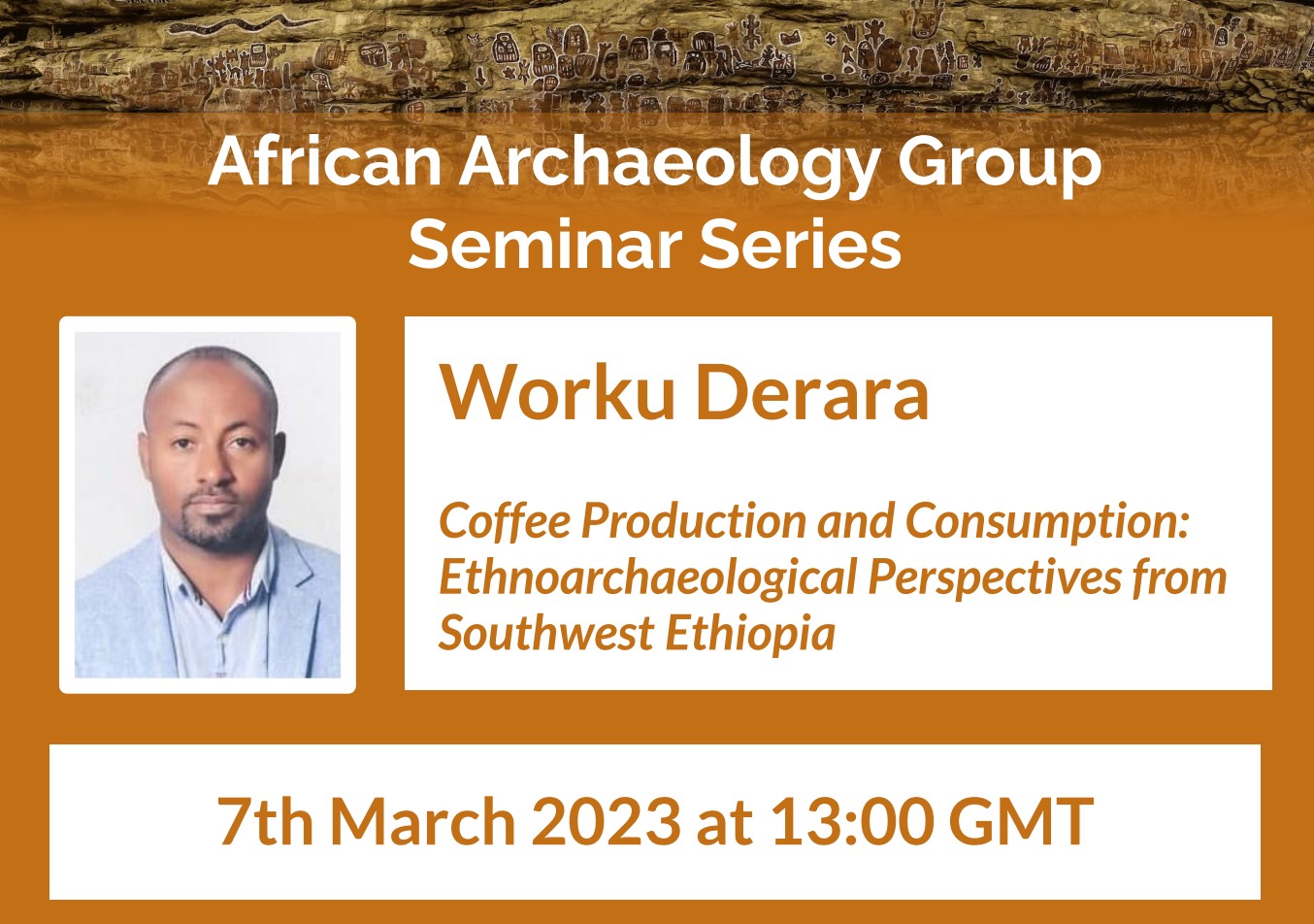

Dr Worku Derara Megenassa earned his BA in History and MA in Archaeology from Addis Ababa University and his PhD in History and Archaeology from Complutense University of Madrid. Currently, he is an Assistant Professor and the head of the Department of Archaeology and Heritage Management at Addis Ababa University. His research interests are ethnoarchaeology, megaliths, environment-culture interactions, cognitive archaeology, and iconography.
To register/join online please click this link: https://zoom.us/meeting/register/tJIpf-ysrTIrGtAx6F7pVM1ZyuLVv_ol79Ko
Abstract: The study of coffee as an indigenous plant has been marginal in the archaeology of Ethiopia, where focus has been given to other topics of interest in prehistory and historical archaeology. Despite the fact that scholars studying Ethiopia have long acknowledged the central role that the production and consumption of the beverage from coffee grains played in traditional Ethiopian societies, few field projects have focused on how to recognize the loci of small-scale coffee production in the archaeological record. Recent ethnoarchaeological study on the role of coffee in traditional communities living in Southwest Ethiopia has shown that the production and consumption of coffee plays a key role in household economies and the socio-cultural life of societies. In this paper, the researcher presents the results of ethnoarchaeological study among three traditional communities in southwestern Ethiopia—where this type of research has not previously been undertaken. He uses new data and existing studies to hypothesize the context in which the early cultivation of the plant might have started. To do so, this study focuses on the material correlates of small-scale traditional coffee cultivation systems, with an explicit emphasis on materials used during the brewing and consumption of the beverage, and the socio-cultural contexts of its consumption. This ethnoarchaeological observation of modern production and consumption of coffee in traditional settings has proposed new analogs pertinent to the interpretation of the archaeological record.


